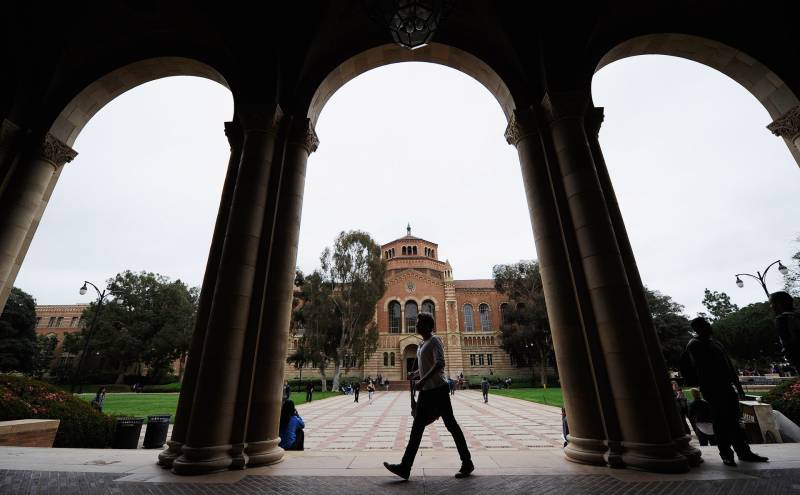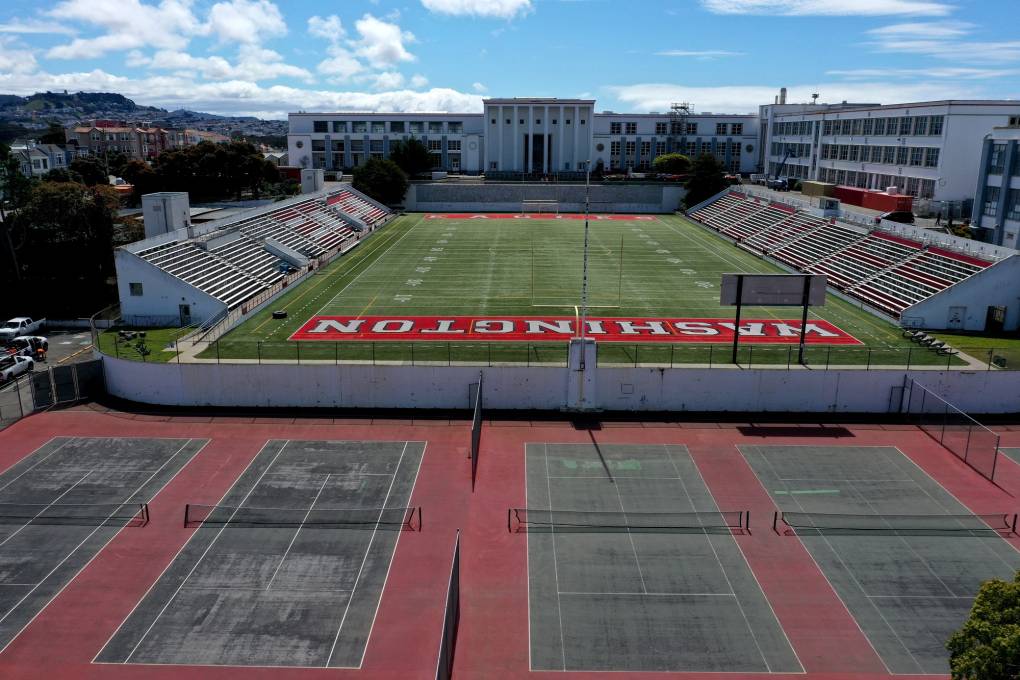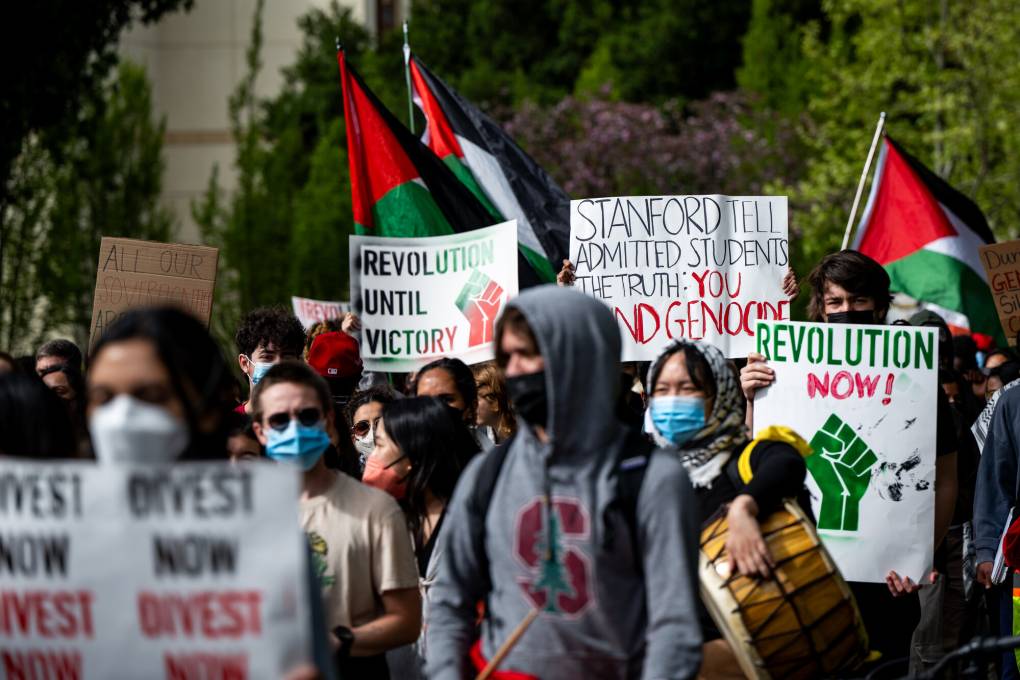Updated 3:51 p.m. Thursday
University of California faculty members across the state are accusing the UC system of carrying out an illegal campaign to repress academic freedom in the wake of pro-Palestinian campus protests, according to an unfair labor practice charge filed Thursday.
According to the allegations filed with the California Public Employment Relations Board, UC administrators have started investigations and disciplinary proceedings against faculty for supporting on-campus student encampments, backing a related strike by student academic workers in the spring, or even teaching about the history of the Israeli-Palestinian conflict.
In a summary of their charge, the faculty members accuse administrators of sending several “vague but threatening communications warning faculty that they could be disciplined for violating the faculty code of conduct, including by purportedly ‘indoctrinating’ students or teaching coursework outside the scope of their course material.”
Members of the Council of University of California Faculty Associations gathered at UCLA on Thursday to announce the charge, which was not far from where the UC Board of Regents was meeting.



